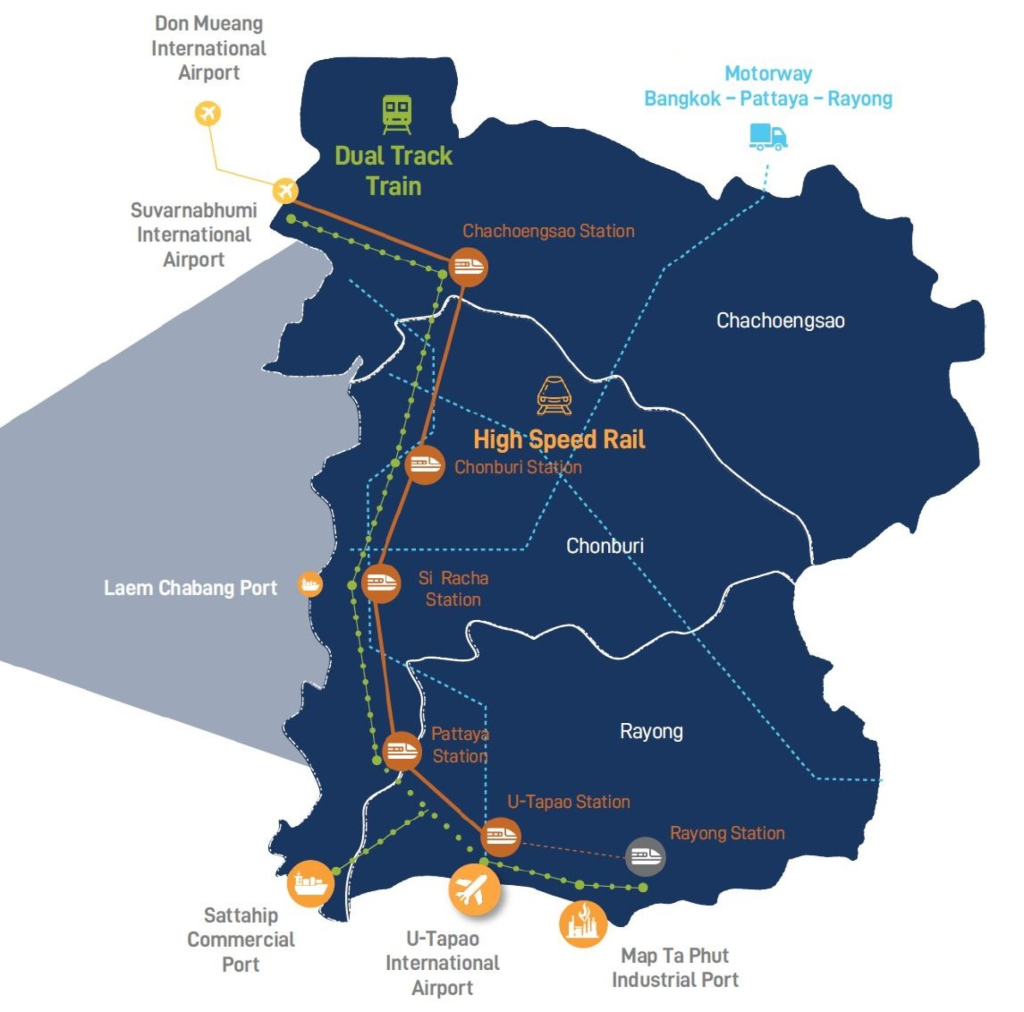As the global automotive industry undergoes a rapid transformation towards electrification, Thailand is positioning itself as a significant player in the production of electric vehicles (EVs). With a combination of government incentives, robust infrastructure, and a skilled workforce, Thailand is attracting both domestic and international manufacturers to establish their EV manufacturing operations in the country.
Thailand’s emergence as a major producer of EVs is driven by several key factors. Firstly, the Thai government has implemented various incentives to promote the adoption of electric vehicles and support the development of the EV industry. These incentives include tax breaks, investment promotion privileges, and subsidies for EV manufacturers and buyers. Additionally, Thailand boasts a well-developed automotive industry ecosystem, with established supply chains, manufacturing expertise, and infrastructure to support EV production.
Furthermore, Thailand offers competitive advantages in terms of production costs and access to key markets. The country’s strategic location in Southeast Asia provides easy access to regional markets, including the fast-growing ASEAN market and the global market. Additionally, Thailand benefits from a skilled workforce and a supportive regulatory environment, making it an attractive destination for EV manufacturers looking to expand their operations.
PM to court EV investors in Germany https://t.co/9mTCvmeGJ0
— LTN 🐝 (@Livetradingnews) February 25, 2024Several major automotive companies have already announced plans to invest in EV production facilities in Thailand. These include both domestic manufacturers and international players seeking to capitalize on the country’s growing EV market. As a result, Thailand is poised to become a major hub for EV production in the coming years, driving economic growth and technological innovation in the region.
For companies looking to establish a presence in the Thailand EV manufacturing space, Knightsbridge Law offers comprehensive legal services and expertise to navigate the complexities of setting up operations in the country. With a deep understanding of Thailand’s regulatory environment and business landscape, Knightsbridge Law provides tailored legal solutions to support clients in their EV manufacturing endeavors. Whether it’s corporate structuring, regulatory compliance, intellectual property protection, or contract negotiations, Knightsbridge Law offers trusted legal counsel to ensure a successful entry into the burgeoning Thai EV market.
Thailand’s emergence as a major producer of electric vehicles represents a significant opportunity for both domestic and international manufacturers. With its favorable business environment, government support, and competitive advantages, Thailand is well-positioned to play a key role in the global shift towards electric mobility. As companies seek to capitalize on this growing market, Knightsbridge Law stands ready to assist clients in navigating the legal and regulatory landscape to establish a successful presence in Thailand’s EV manufacturing sector.
Thailand’s Ascendance as a Manufacturing Powerhouse
Thailand has rapidly emerged as a manufacturing powerhouse in recent years, attracting investment from across the globe and solidifying its position as a key player in the global supply chain. With its strategic location, skilled workforce, supportive business environment, and robust infrastructure, Thailand offers a compelling proposition for companies seeking to establish manufacturing operations in the region.
One of the key drivers of Thailand’s manufacturing growth is its strategic location in Southeast Asia. Situated at the crossroads of major trade routes, Thailand serves as a gateway to the dynamic markets of Asia-Pacific. Its proximity to key markets such as China, India, and ASEAN countries provides companies with unparalleled access to a vast consumer base and supply chain networks.
Moreover, Thailand boasts a highly skilled and productive workforce, equipped with technical expertise and a strong work ethic. The country’s education system emphasizes vocational training and technical skills development, ensuring a steady supply of skilled workers for the manufacturing sector. Additionally, Thailand’s labor costs remain competitive compared to other manufacturing hubs in the region, further enhancing its attractiveness to investors.
In addition to its skilled workforce, Thailand offers a favorable business environment characterized by supportive government policies, streamlined regulatory procedures, and attractive investment incentives. The Thai government has implemented various initiatives to promote investment and facilitate business operations, including tax incentives, investment promotion schemes, and infrastructure development programs. These measures have contributed to a conducive environment for manufacturing companies to thrive and expand their operations in Thailand.

Furthermore, Thailand boasts world-class infrastructure, including modern transportation networks, ports, and industrial estates, that facilitate seamless logistics and supply chain management. The country’s well-developed infrastructure enhances efficiency, reduces costs, and enables manufacturers to access markets quickly and efficiently.
As a result of these factors, Thailand has attracted significant investment from multinational corporations across a wide range of industries, including automotive, electronics, aerospace, and healthcare. Major companies such as Toyota, Honda, Samsung, and Bosch have established manufacturing facilities in Thailand to capitalize on its competitive advantages and leverage its strengths as a manufacturing hub.
Looking ahead, Thailand is poised to continue its rapid growth as a manufacturing powerhouse, driven by ongoing investments in infrastructure, technology, and innovation. With its strategic location, skilled workforce, supportive business environment, and world-class infrastructure, Thailand offers a compelling value proposition for companies seeking to establish and expand their manufacturing operations in the heart of Southeast Asia.
Thailand’s ascent as a manufacturing powerhouse underscores its position as a key player in the global economy. With its favorable business environment, skilled workforce, and strategic location, Thailand offers immense opportunities for companies looking to tap into the dynamic markets of Asia-Pacific. As Thailand continues to attract investment and expand its manufacturing capabilities, the country is well-positioned to shape the future of global manufacturing in the years to come.
Unlocking Investment Opportunities in Thailand: The EEC and BOI Advantage
Thailand has established itself as an attractive destination for foreign investors, offering a range of incentives and benefits to facilitate business expansion and investment growth. Two key initiatives, the Eastern Economic Corridor (EEC) and the Board of Investment (BOI), play pivotal roles in promoting investment and driving economic development in Thailand. With these attractive incentives in place, partnering with Knightsbridge Law can provide investors with expert guidance and support to maximize their investment opportunities in the kingdom.
The Eastern Economic Corridor (EEC) is a flagship initiative aimed at transforming Thailand’s eastern provinces into a leading economic zone and innovation hub in Southeast Asia. The EEC offers a range of incentives to attract investment in targeted industries, including advanced manufacturing, aerospace, automotive, biotechnology, digital technology, and healthcare. These incentives include tax breaks, investment promotion measures, streamlined regulatory processes, and enhanced infrastructure development. By investing in the EEC, companies can benefit from a supportive ecosystem that fosters innovation, facilitates business growth, and drives economic prosperity.
Similarly, the Board of Investment (BOI) serves as a central agency responsible for promoting investment and supporting business expansion in Thailand. The BOI offers a wide range of incentives and privileges to eligible businesses across various industries, including tax incentives, import duty exemptions, permission for foreign ownership, and streamlined work permit processes. Additionally, the BOI provides investment promotion measures tailored to specific industries, such as targeted tax incentives for priority sectors like automotive, electronics, medical devices, and renewable energy. By leveraging BOI incentives, investors can enhance their competitiveness, reduce operating costs, and accelerate business growth in Thailand.
Partnering with Knightsbridge Law can offer investors invaluable support and expertise in navigating the complexities of investing in Thailand’s dynamic business landscape. Knightsbridge Law specializes in providing legal and advisory services to foreign investors seeking to capitalize on Thailand’s investment opportunities. With a deep understanding of Thai laws, regulations, and business practices, Knightsbridge Law can assist investors in structuring their investments, obtaining necessary permits and licenses, and ensuring compliance with local regulations. Moreover, Knightsbridge Law’s extensive network and strategic partnerships can provide investors with access to key stakeholders, industry experts, and investment opportunities in Thailand.
Thailand’s EEC and BOI initiatives offer attractive incentives and opportunities for foreign investors seeking to expand their presence in the kingdom. By capitalizing on these incentives and partnering with Knightsbridge Law, investors can unlock their full potential and maximize their investment returns in Thailand. With its expertise, experience, and commitment to client success, Knightsbridge Law is the ideal partner for investors looking to navigate Thailand’s investment landscape and achieve their business objectives in the kingdom’s vibrant and dynamic economy.









